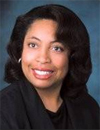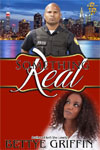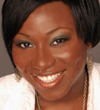 After taking a week to recover from the whirlwind which was this year’s NY Comic-Con, I wanted to share with other authors some of the things I learned. I had a booth in the Small Press section of the event. This was my first time exhibiting anywhere as an author, so if some of the lessons here seem obvious, forgive me, but I didn’t want to leave anything out.
After taking a week to recover from the whirlwind which was this year’s NY Comic-Con, I wanted to share with other authors some of the things I learned. I had a booth in the Small Press section of the event. This was my first time exhibiting anywhere as an author, so if some of the lessons here seem obvious, forgive me, but I didn’t want to leave anything out.
1) If you are a sci-fi/fantasy/paranormal/horror author, you should try it. This year’s Comic-Con brought out over 115,000 sci-fi book/movie/comic lovers. This is our target audience. There were very few exhibitors of color, and even fewer female exhibitors. I think I was the only one selling sci-fi novels in the ENTIRE small press section which included at least 90 exhibitors. I say I think because I didn’t get to walk around much, but my friend did and said she didn’t see anyone else selling my genre. If you present a visually interesting booth, you WILL get attention and an opportunity to pitch your book. These are folks who are looking for something new.
2) Prepare! Exhibiting at NY Comic-Con is not cheap (the booth alone was $949). You want to make a visually stimulating impression. You can get a high quality banner from VistaPrint for $50. I did this and got a very large foam board poster of my book cover and it worked well. I also had smaller posters of my book cover that lined the curtain of my booth (I got these for free) and a TV/DVD combo on my table that I used to play my book trailer on loop. It got people’s attention.
3) Your entire book pitch needs to be 15 seconds or less. You probably already know this, but there is so much stimulation overload at the convention that people really can’t handle a lot of info. It is very loud. I tried to ask folks, if they were sci-fi novel fans. This worked for me. It allowed me to address passerbys personally and let them know what I was selling at the same time. Here is my entire pitch:
Me: Are you a sci-fi reader?
Reader: Yeah, I am. What’s Order of the Seers about?
Me: Well, the story is about a group of people who can see the future and are enslaved for that ability and the book is all about how they escape the organization that is trying to exploit their gift, reclaim their power and ultimately fight back. (I usually pause here to see if they have any questions. If they are staring at the cover and don’t ask any questions, I then add)
So there is lots of action, adventure and suspense with a little bit of romance too. If they didn’t ask any questions, I would then go on to mention the sale price of the book and offer to sign it for them if they are interested.
That’s it. I don’t like a “hard sell” approach, so I just tried to think of something I could say that I would be comfortable with. If someone said they weren’t a sci-fi reader, I usually asked them what kind of books they liked to read. Sometimes that discussion led to a sale. Other times, I recommended other authors that would suit them better. Either way, my goal was to create a positive experience for everyone who came in contact with my booth.
4) Free stuff. I had candy at my table and postcards that had my book cover on the front and a very short description of my book on the back with a QR code that linked to a free download of my first chapter. People seemed to like that. I also had “Order of the Seers” gift bags that I ordered on line for about $.75 cents a bag. I gave them out for free with a book purchase and sold them for $3 each alone. I can give the link to the companies I used for the postcards and the bags if anyone is interested.
5) The contacts that I made were very valuable. I met librarians, bloggers, press and an agent who took my information. I did 3 on the spot interviews and got a chance to submit my information for a free ad within a small NY based magazine. These were all people I never would have met if I hadn’t gone. We’ll see what this means in terms of actual exposure and book sales, but I also met some wonderful people in the industry that I look forward to working with on future projects
6) Book sales. In 4 days, I sold 5 ½ cases of books (32 books to a case). I am told this is good for a no-name author in the Small Press section with only 1 title (I’m not putting myself down. It’s just true). I think if you have more than one title, you could do even better. I more than paid for the cost of my booth and rentals (something I was told would not happen).
7) Cost controls. A big part of why I was able to make a small profit was that I stayed with a friend while in NY. I think this is essential. A complete breakdown of all my costs is listed below. If you are not local, you will probably have to rent a table. My raggedy 6 ft table cost me $70 to rent! Make that your one and only rental. Buy folding chairs at WalMart or Target. Get your own table skirt (They want $200 to rent a fully skirted table).
8) You need help. Get at least 3 people to rotate the days with you. No less than 2 on any given day. You are entitled to 5 exhibitor passes with your booth, so you can give them to your friends in exchange for help. I had at least 1 people with me every day and while it was enough, I still didn’t get much time to walk around and that makes a sci-fi chick a little sad….
9) Bring at least 150 books.
10) There was A LOT of diversity among the attendees. They would have LOVED to see more books and content with diverse characters. Although, I am sure that my bookcover, which has a white woman on it, shook up folks expectations of what I was selling, I think that a cool presentation of any race of characters could do well in this environment. Visual presentation is key here. If it looks good, you will have an opportunity to SELL.
11) Get them on the mailing list. Marketing guru, Seth Godin, has talked often about the publishing industries failure to capture the contact information of the people who buy their books, so that each time a new release comes out, they have to find those folks all over again. I offered a free exclusive preview of the Order of the Seers sequel as a way to entice people to sign-up for my mailing list. With this event alone, my mailing list has gone from 17 people to almost 200 folks that I now have permission to market my books to. The moral of the story is creating some incentive for having people sign-up for your mailing list can really help build your base.
12) Take the time to get to know the folks around you. You’re going to be with these folks for 4 days. These are the people who will watch your booth while you go to the bathroom. Be nice. I had two fellow exhibitioners refer me to helpful contacts (when they barely talked to other exhibitors) because I took the time to be courteous and helpful.
13) My budget – $1539
- Booth rental: $949
- TV rental: $150 (This was a mistake. I wish I had just bought one for around the same price.)
- Table rental: $70
- Banner: $50 (Vista Print has the cheapest price I found)
- Table Cloth: $90 (I bought mine because I plan to do a lot of conferences)
- Chairs: $30
- Supplies and Incidentals: $100
- Javits Wi-fi: $100 (you won’t be able to process a credit card sale w/o this. But most people had cash, so you could skip this and lose out on a small portion of sales. But I imagine this service would be critical for people with higher priced items. )
I have listed out all the items that I bought/rented here to give you the most honest snap shot of what it will cost you to go to NY Comic Con, but I do not consider some of these items (chairs, banner, tablecloth), to be just NY Comic Con expenses. I have and will use these items in other events that I plan to attend throughout the next 12 months and beyond.
I hope this is helpful to you. Please feel free to email me at cerecemurphy@gmail.com if you have any questions that I haven’t answered.
Order of the Seers ~ The Hunt is On
See the Book Trailer and Read Ch. 1 Here!
Follow me on Twitter @cerecermurphy
Don’t have a copy of Become A Successful Author? What are you waiting for?Become A Successful Author will be used in the “How To Write That Novel” course at Chicago State because it covers everything from branding to writing to editing to formatting and uploading electronic and print books to marketing and so much more. Your time is money. Look at all the time, thus money, you’ll save by ending your search for answers: Purchase Become A Successful Author for only $4.99 (eBook) or $9.99(print) from: Amazon (US), Amazon (UK), Barnes & Noble
 Some say writer’s block is a myth, a form of procrastination. Other authors insist it’s real, and they’ve suffered through it. As a therapist I’ve learned that if a person is convinced, it doesn’t matter if others say something is real or all in your mind. The bottom line is you need to work on the problem, whatever it is. Here are some tips to shock your unconscious muse back to life.
Some say writer’s block is a myth, a form of procrastination. Other authors insist it’s real, and they’ve suffered through it. As a therapist I’ve learned that if a person is convinced, it doesn’t matter if others say something is real or all in your mind. The bottom line is you need to work on the problem, whatever it is. Here are some tips to shock your unconscious muse back to life.








